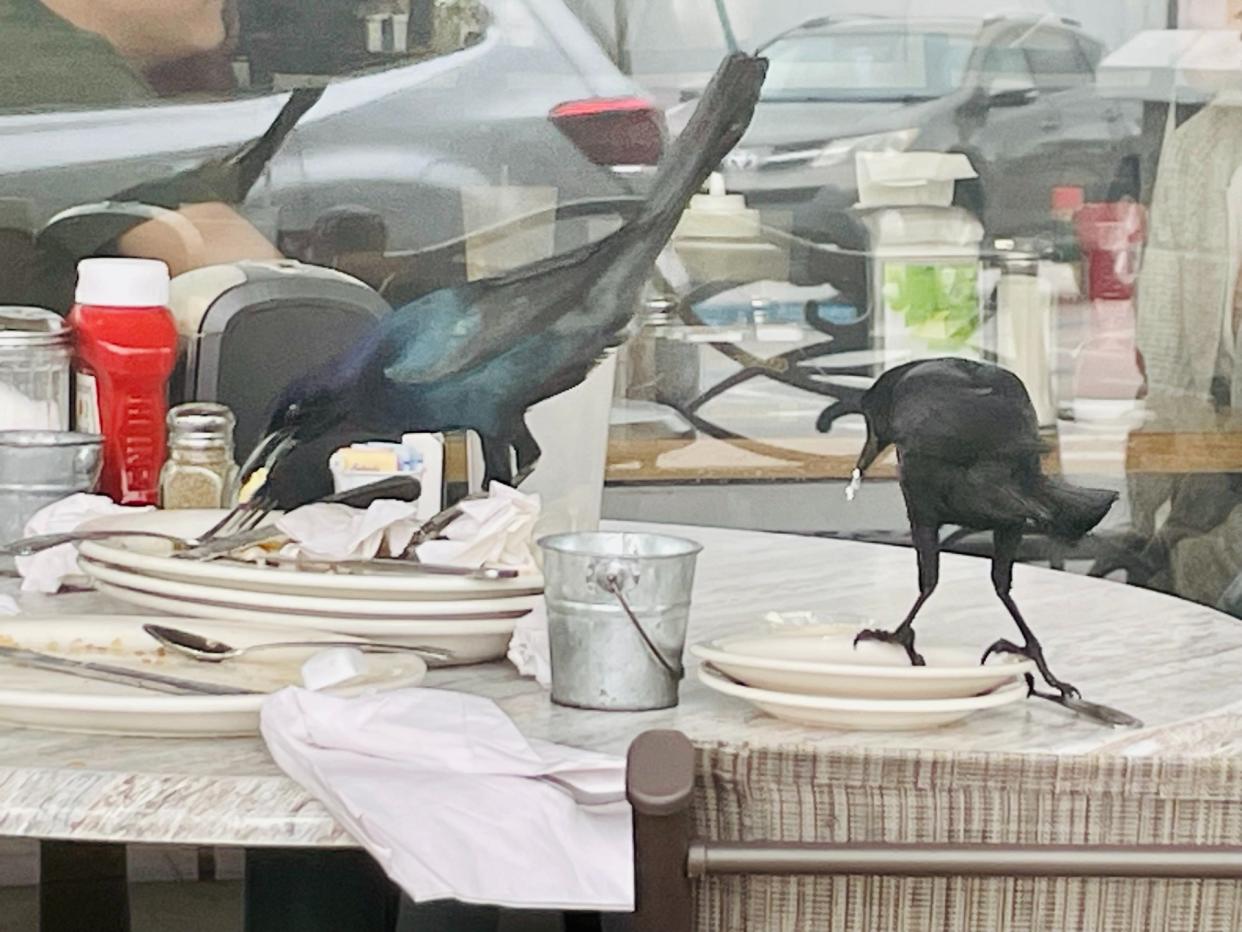How to keep birds away from outdoor dining? What some experts suggest

Eating like a bird might be fine for consumers, but eating with birds can be exasperating.
Restaurants and hotels with outdoor dining are among the hospitality-oriented businesses that reach out to wildlife officials and pest-control companies for advice on deterring birds from eating people’s food.
The issue of how to fend off such birds recently was thrust into the spotlight, when the Florida Fish and Wildlife Conservation Commission says federally protected birds were seen on video exhibiting the effects of being poisoned at the Weston Town Center. In that case, officers issued two misdemeanors to an employee of a pest-control company in Oakland Park.
Still, experts say there are some ways to fend off birds.
‘Deterring the wildlife’
Birds often will converge on a restaurant if they find ample chances to swoop down for food.
It can be a matter of not leaving food-laden areas exposed: Eateries can ensure dumpsters or other waste receptacles are closed to prevent birds and other animals from gaining access, according to Arielle Callender, a spokeswoman for the Florida Fish and Wildlife Conservation Commission.
Birds also may be discouraged from perching with the use of bird spikes, or by hanging reflective objects that create motion such as fladry or streamers or devices that make noise to deter them from lingering in the area, she said.
“A combination of ensuring all food is secured, educating patrons to not feed wildlife, and actively deterring the wildlife is typically needed,” she said.
Related Articles
Environment | Broward pest control employee charged with poisoning birds at Weston shopping center
Environment | ‘We don’t do work that way’: Pest-control company defends worker cited over alleged bird poisoning
‘They are pretty smart’
Jenny Chapter, owner of Accurate Pest Control, Quality Termite and Pest Control, and Quality Bird Control in Plantation, said, “You wouldn’t realize how much of a nuisance birds are, particularly the pigeons.”
“They can get aggressive as well. If there’s food around there, they’re there,” she said. “And they aren’t shy. And the flock continues to grow.”
Another option is installing netting or steel mesh to physically keep the birds away. And there are also plastic spikes, popular for grocery and drugstore signage, that zigzag in all directions so the birds can’t land.
But birds may not give up too easily on those, she said. She has seen them rustle up “nesting debris” such as sticks to place over the spikes as a cushion and still land.
“They are pretty smart,” she said.
John Harvey, Truly Nolen’s commercial regional sales manager for Florida, said they get the most calls about pesky birds such as pigeons and Canadian geese from hotels and restaurants with outdoor seating. Their method of choice are chemicals that are safe that alter smell or vision — or both. “in conjunction, that’s a good one-two punch,” he said. The chemicals don’t cause death, he said.
The smell option reeks of cayenne pepper, grape seed extract and mint extract. “It’s a bronchial deterrent,” Harvey said. “Birds don’t like the smell of it. To us it smells like grape juice. It’s to retrain birds to get them to go out of that particular area.”
The “optical distortion” choice is a dye not seen by the human eye, but distorts the vision for birds. “If a bird is in flight they would fly on in a different direction,” he said.
“Birds are a protected species,” he said. “You are not supposed to cause them permanent harm or discomfort.”
Enjoy their company?
Restaurant customers also could just plan to exercise some patience with the birds: It’s part of living in South Florida, said Doug Young, chief operating officer for the South Florida Audubon Society.
“I can understand a restaurant wouldn’t want the birds around. But if you live in South Florida and you sit outside to eat, it’s not uncommon for birds to come near you and get a little nibble of whatever,” he said.
Lisa J. Huriash can be reached at lhuriash@sunsentinel.com. Follow on X, formerly Twitter, @LisaHuriash

